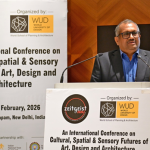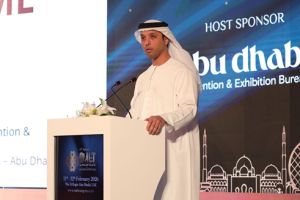
- FHRAI urges the government to grant infrastructure status to hotel and convention center projects costing ₹10 crore and above in Budget 2025-26.
- FHRAI calls for simplifying licensing and approval processes through a single-window clearance system to encourage investment in the hospitality sector.
- The association advocates for rationalizing GST rates for hospitality services, delinking restaurant GST from room tariffs, and revisiting GST “place of supply” rules to improve competitiveness.
- FHRAI highlights the need for reform in excise and liquor licensing rules, suggesting a simpler process with nominal fees to foster industry growth.
TTT NEWS NETWORK
NEW DELHI, 16 JANUARY 2025:
The Federation of Hotel & Restaurant Associations of India (FHRAI), the third largest hospitality association in the world, has outlined its expectations from the upcoming Union Budget 2025-26. FHRAI urges the government to introduce reforms that will address the critical challenges faced by the hospitality and tourism sector. FHRAI believes these reforms will increase investment, create employment, and support overall economic growth in the industry, which is a major contributor to India’s economy.
FHRAI’s primary recommendation is to grant infrastructure status to hotel and convention center projects with costs starting from ₹10 crore. The current criteria for infrastructure status require hotel projects to exceed ₹200 crore and convention centers ₹300 crore, making it inaccessible to smaller projects that dominate the Indian market. Furthermore, the additional criterion that cities must have a population of over one million to qualify creates a significant barrier for tourism development in India.
FHRAI believes that the one-million-population requirement excludes the vast majority of India’s cities, as only 53 cities in the country meet this criterion based on the 2011 Census. This restriction prevents historically significant and emerging tourism destinations from accessing infrastructure benefits, even though these locations have tremendous tourism potential. Many towns with heritage sites, natural attractions, or pilgrimage centers are home to populations well below this threshold. As a result, projects in these areas struggle to access financing at favorable terms, limiting their growth and, consequently, the development of tourism in these regions.
K Syama Raju, President of FHRAI, said, “The hospitality and tourism sector is crucial to India’s economic growth. It provides employment opportunities and generates substantial foreign exchange earnings. However, the sector is currently facing multiple challenges due to restrictive policies and regulations. By granting infrastructure status to smaller projects, streamlining the licensing process, and addressing GST issues, we can help unlock the full potential of this sector. These reforms will create a more competitive and sustainable environment for businesses, which will, in turn, help India position itself as a global leader in tourism. This is an opportunity for the government to align policies with the growing demands of the tourism industry and ensure that India remains a top destination for both domestic and international visitors.”
In addition to infrastructure status and the simplification of licensing processes, the federation also calls for the rationalization of GST rates on hospitality services. The current GST structure is among the highest in the world, which makes India less competitive compared to neighboring countries. FHRAI recommends delinking GST on restaurants from room tariffs in hotels and restructuring GST rates for restaurants, banquets, and events. The association also urges the government to revisit the “place of supply” rules under GST, which would allow businesses to claim input tax credits for services sourced from other states. This would reduce operational costs and improve the overall competitiveness of Indian tourism.
FHRAI emphasizes the need for reforms in excise and liquor licensing rules, which are currently complex and involve high fees. The association suggests a simplified process, similar to the FSSAI registration system, with nominal fees, which would make it easier for businesses to comply and help meet the growing demand for leisure and entertainment services. The federation believes that these proposed reforms will play a significant role in realizing India’s vision of becoming a $1 trillion tourism economy by 2047. By addressing these issues, India can enhance its position as a global tourism destination, creating more jobs, increasing foreign exchange earnings, and contributing to the overall growth of the economy.
About FHRAI:
The Federation of Hotel & Restaurant Associations of India (FHRAI) is the apex body of the Indian hospitality industry, representing over 60,000 hotels and 500,000 restaurants across the country. Established in 1955, FHRAI works as a voice for the hospitality sector and collaborates with the government, regulatory bodies, and international organizations to support the growth of India’s hospitality and tourism industries.

Advertisement:






























Add Comment